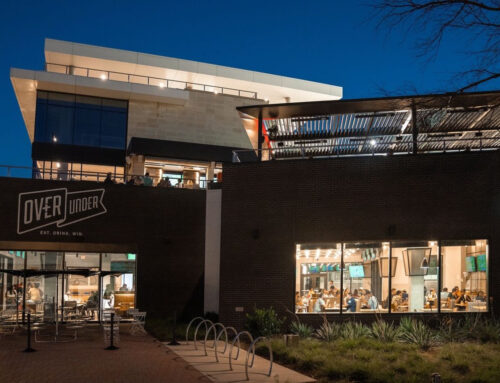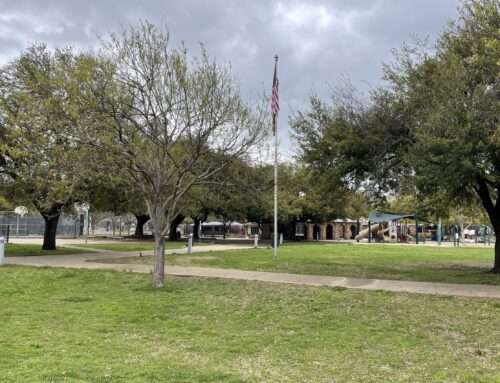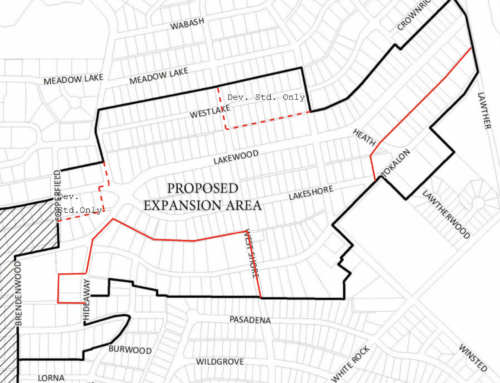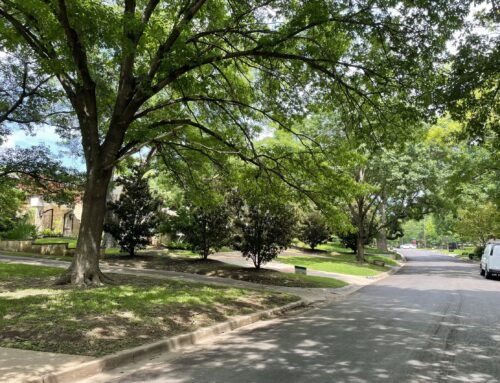The Lakewood Theatre has one more chance.
The historic movie palace, shuttered for most of the past two years, may reopen sometime this year. That’s the intention of North Dallas developer Jimmy Christian, whose group was scheduled to close on a deal to purchase the theater and surrounding property late last month.
Christian, other than disclosing he wants to use the Lakewood Theater to show movies, doesn’t want to talk about his plans until he owns the property. So far, it has taken six weeks longer than scheduled for the deal to close, but that’s not, apparently, all that unusual in the real estate business.
In fact, Emmitt Ball, who manages the property, says there’s a 90 percent chance the deal will go through.
That’s good news for everyone who winces whenever they drive past the all but abandoned Lakewood. Not only does it hurt to see such a terrific movie house sit empty, but it’s painful to realize that for all of the economic progress we have made in the past decade, we still haven’t fixed the problems that caused the Lakewood to sit empty.
Best yet, there don’t seem to be too many reasons to be worried about Christian’s intentions. Several of his colleagues speak highly of his good intentions and quality developments. City Councilman Craig McDaniel – whose district includes the theaters and show house is just blocks away – gives Christian high marks for neighborhood cooperation on several other projects, including the proposal to relocate the Oak Lawn Library to make way for a Kroger’s.
Christian is not, apparently, the fly-by-night sort of guy who would buy the Lakewood, tell everyone he would do one thing with it, and then do something else. We probably don’t have to fear that the neighborhood landmark, built almost 60 years ago, will be turned into a flea market or a gentlemen’s club.
A less scrupulous developer might not be so inclined. Part of the attraction for anyone buying the theater and surrounding property is its favorable zoning and its liquor license. Those aspects are so favorable, in fact, that a number of East Dallas developers wonder why anyone would want to try to revive the theater when something like a brewpub would seem to make more economic sense.
The zoning – it’s a planned development district – is part of a compromise reached in the ‘80s by the nearby Junius Heights neighborhood and Lakewood merchants. The deal, which allows the theater to be used as a theater, waives the parking restrictions that anyone else would face if they were building a new theater from the ground up.
This means that anyone who bought the theater and used it as something that even vaguely resembled a theater would have a leg to stand on during a court flight, and we know how well the City manages when someone sues it over zoning.
The liquor license, currently used by the bar on the theater’s second floor, means that the state says the owner can sell liquor on the site regardless of what local regulations or zoning laws permit.
Again, this is a powerful weapon if someone wants to turn the theater into a nightclub despite neighborhood opposition. No one in Dallas has yet found a way to get around the concept that state laws supersede City ordinances.
Given those two assets, it gets progressively more difficult for the neighborhood to fight a development it doesn’t want.
Hopefully that won’t be the case when Christian and his partners take over. He promises he has dynamic plans for boosting the area, and he says he’ll talk about those plans as soon as he is officially the owner.
Let’s hope it’s something to look forward to.





